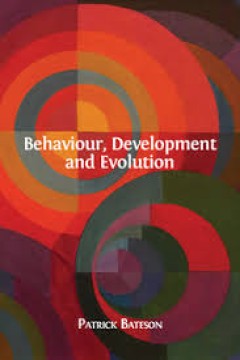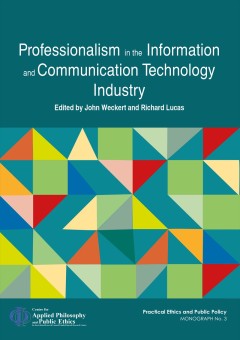Filter by
# Debug Box
/var/www/htdocs/pustaka-digital/lib/SearchEngine/SearchBiblioEngine.php:688 "Search Engine Debug 🔎 🪲"
Engine Type ⚙️: "SLiMS\SearchEngine\SearchBiblioEngine"
SQL ⚙️: array:2 [ "count" => "select count(sb.biblio_id) from search_biblio as sb where sb.opac_hide=0 and (sb.call_number LIKE :callnumber)" "query" => "select sb.biblio_id, sb.title, sb.author, sb.topic, sb.image, sb.isbn_issn, sb.publisher, sb.publish_place, sb.publish_year, sb.labels, sb.input_date, sb.edition, sb.collation, sb.series_title, sb.call_number from search_biblio as sb where sb.opac_hide=0 and (sb.call_number LIKE :callnumber) order by sb.last_update desc limit 10 offset 100" ]
Bind Value ⚒️: array:1 [ ":callnumber" => "1%" ]

Metaethics from a first person standpoint: an introduction to moral philosophy
- Edition
- -
- ISBN/ISSN
- 9781783742011
- Collation
- viii + 124 p.; 23 cm.
- Series Title
- -
- Call Number
- 170.42 CAT m
- Edition
- -
- ISBN/ISSN
- 9781783742011
- Collation
- viii + 124 p.; 23 cm.
- Series Title
- -
- Call Number
- 170.42 CAT m

Behaviour, development and evolution
- Edition
- -
- ISBN/ISSN
- 9781783742516
- Collation
- 134 p.; 23 cm.
- Series Title
- -
- Call Number
- 150.1943 PAT b
- Edition
- -
- ISBN/ISSN
- 9781783742516
- Collation
- 134 p.; 23 cm.
- Series Title
- -
- Call Number
- 150.1943 PAT b

Professionalism in the information and communication technology industry
Professionalism is arguably more important in some occupations than in others. It is vital in some because of the life and death decisions that must be made, for example in medicine. In others the rapidly changing nature of the occupation makes efficient regulation difficult and so the professional behaviour of the practitioners is central to the good functioning of that occupation. The core id…
- Edition
- -
- ISBN/ISSN
- 9781922144447
- Collation
- vii, 372p. : ill.
- Series Title
- -
- Call Number
- 174.93034833 WEC p

Ethical programs : hospitality and the rhetorics of software
Living in a networked world means never really getting to decide in any thoroughgoing way who or what enters your “space” (your laptop, your iPhone, your thermostat . . . your home). With this as a basic frame-of-reference, James J. Brown’s Ethical Programs examines and explores the rhetorical potential and problems of a hospitality ethos suited to a new era of hosts and guests. Brown rea…
- Edition
- -
- ISBN/ISSN
- 9780472072736
- Collation
- x, 217p. : ill.
- Series Title
- -
- Call Number
- 174.9005 BRO e

Ethics and drug resistance: collective responsibility for global public health
This Open Access volume provides in-depth analysis of the wide range of ethical issues associated with drug-resistant infectious diseases. Antimicrobial resistance (AMR) is widely recognized to be one of the greatest threats to global public health in coming decades; and it has thus become a major topic of discussion among leading bioethicists and scholars from related disciplines including eco…
- Edition
- -
- ISBN/ISSN
- 9783030278748
- Collation
- xvii, 448p. : ill.
- Series Title
- -
- Call Number
- 171.7 ETH e
A Sensory education:
A Sensory Education takes a close look at how sensory awareness is learned and taught in expert and everyday settings around the world. Anna Harris shows that our sensing is not innate or acquired, but in fact evolves through learning that is shaped by social and material relations. The chapters feature diverse sources of sensory education, including field manuals, mannequins, cookbooks and fla…
- Edition
- -
- ISBN/ISSN
- 9781003084341
- Collation
- xx, 184p.: ill.
- Series Title
- -
- Call Number
- 152.1 HAR s

Research ethics for students in the social sciences
This open access textbook offers a practical guide into research ethics for undergraduate students in the social sciences. A step-by-step approach of the most viable issues, in-depth discussions of case histories and a variety of didactical tools will aid the student to grasp the issues at hand and help him or her develop strategies to deal with them. This book addresses problems and questio…
- Edition
- -
- ISBN/ISSN
- 9783030484156
- Collation
- xvi, 287p. : ill.
- Series Title
- -
- Call Number
- 174.93 BOS r

Information-consciousness-reality : how a new understanding of the universe c…
This open access book chronicles the rise of a new scientific paradigm offering novel insights into the age-old enigmas of existence. Over 300 years ago, the human mind discovered the machine code of reality: mathematics. By utilizing abstract thought systems, humans began to decode the workings of the cosmos. From this understanding, the current scientific paradigm emerged, ultimately discover…
- Edition
- -
- ISBN/ISSN
- 9783030036331
- Collation
- xxiv, 662p. : ill.
- Series Title
- -
- Call Number
- 113 GLA i

Emotions in history: lost and found
Ute Frevert.
- Edition
- -
- ISBN/ISSN
- 9786155053344 (pbk.)
- Collation
- 255 p. : ill. ; 20 cm.
- Series Title
- Natalie Zemon Davis annual lecture series
- Call Number
- 152.4 FRE e

Teaching ethics in organ transplantation and tissue donation - cases and movies
Organ transplantation is a thrilling new option for modern surgery giving hope for chronically ill patients, and, at the same time, stirring controversial ethical questions on human identity and the meaning of the human body. Being a global and transnational endeavor, organ transplantation raises universal ethical concerns and, yet, has to be adapted to culturally mediated believes. In this boo…
- Edition
- -
- ISBN/ISSN
- 9783941875401
- Collation
- 88p.
- Series Title
- -
- Call Number
- 174. 297954 TEA t
 Computer Science, Information & General Works
Computer Science, Information & General Works  Philosophy & Psychology
Philosophy & Psychology  Religion
Religion  Social Sciences
Social Sciences  Language
Language  Pure Science
Pure Science  Applied Sciences
Applied Sciences  Art & Recreation
Art & Recreation  Literature
Literature  History & Geography
History & Geography